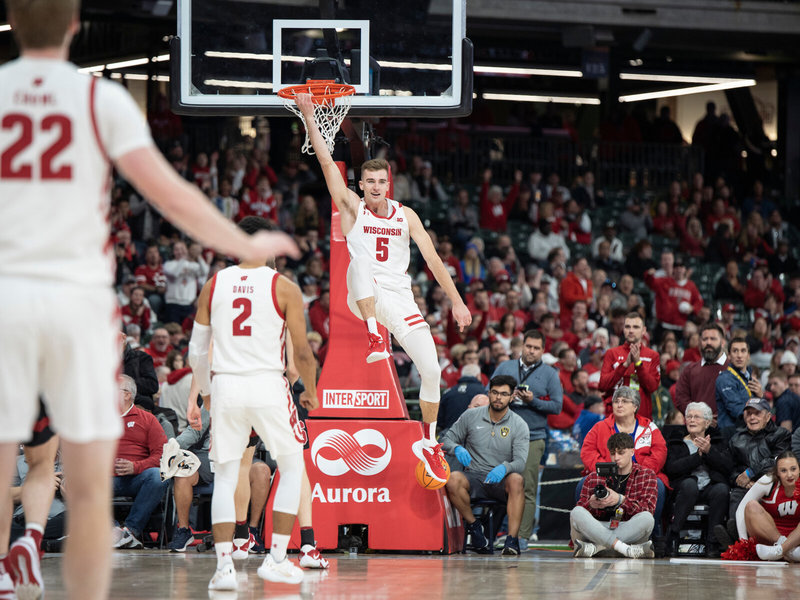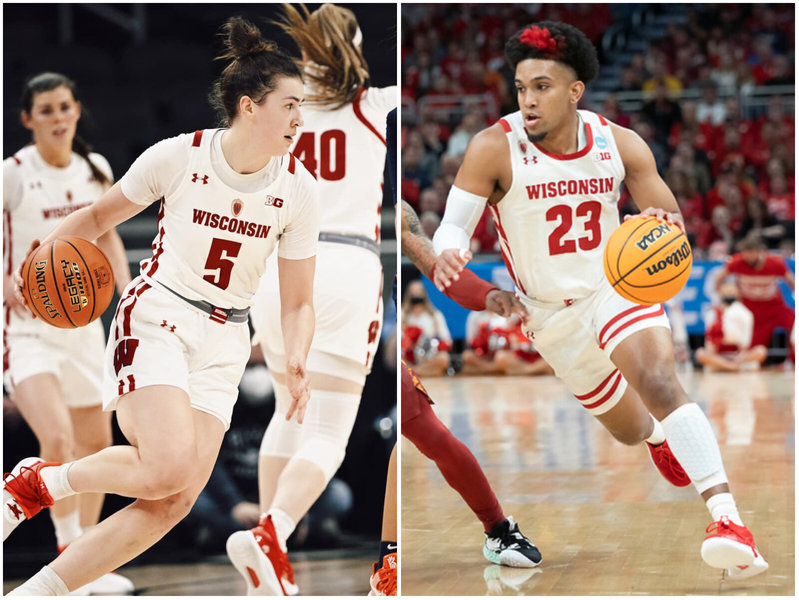Saturday night offered two perfect illustrations of why replay in sports is a very, very good and necessary thing.
One came in Game 3 of the World Series, when umpire Ron Kulpa ruled Matt Holliday safe on what replays clearly showed was a successful double play. The botched call allowed St. Louis to score four runs in what was ultimately a 16-7 victory.
Closer to home, a booth review overturned a ruling on the field that gave Michigan State a 37-31 victory over Wisconsin on a hail mary pass as time expired.
Let's start with the Badgers and the Spartans.
There were two good calls to end the game, actually. The original ruling that Michigan State's Keith Nichol was down at the one-yard line was right. The officials went with what they saw, and made the appropriate ruling.
There was little doubt that the play would be subject to review and, after closer inspection, the officials found that Nichol did, in fact, twist himself enough that the ball crossed the plane of the goal line for a touchdown and a Spartans victory.
In college football, the No. 1 rule of replay is that the evidence must be indisputable. And if you watched closely – and a little objectively – you'd see that Nichol got just enough of the ball over the line. And again, remember, the entire ball doesn't have to completely clear the goal line ... one millimeter has to pass the imaginary line between the pylons and it's a touchdown.
The refs got it right.
It was a good call. It was the right call. The officials should be commended.
And it's another example of the benefits of instant replay. It helps those who make the calls make the correct calls. More than anything else, that should be the overriding factor in the debate.
In this day and age, there is no excuse for not having instant replay. Plain and simple. Every call, every ruling ... everything should be subject to review. There should be no grey area, no room for error and no opportunity for second-guessing.
Take Major League Baseball, for example. MLB instituted replay on home run balls a few years back. It's worked. It's helped the game. Bud Selig has been resistant to expand replay, though it would have easily negated botched calls like the one which robbed Detroit's Armando Galarraga of a no-hitter last season and could have probably spared Kulpa the wrath of Rangers fans.
Baseball's argument of the human element is tired and outdated. Yes, there is something to be said for a game that still tips its cap to the rules established generations ago. But the game has changed. The times have changed. The world has changed.
We live in a world where we can watch replays on our phones within split seconds. We know, even before those on the field sometimes, if a call was wrong. Why are we still leaving these calls to chance?
The time has come – well actually, it came a long time ago – for all major sports to make replay a way of life. The National Football League has made it work. Baseball and the NBA have it in limited capacity and college football has started to get the hang of it.
But it needs to be better. There needs to be more. The time has come for replay; unlimited, all-encompassing and absolute. Fans pay a lot of money for tickets, they deserve to see the games settled fairly.
Welcome, Theo: Theo Epstein's hiring as Chicago Cubs General Manager became official last week and expect the former boy wonder to get to work quickly turning the Cubs into a winner.
High atop Epstein's list is a power-hitting bat and, no secret to anybody who's been paying attention, Prince Fielder is likely high atop Epstein's wish list.
Before your start having nightmares about Fielder leaving Milwaukee for the friendly confines, keep in mind that the Cubs still have a significant chunk of their payroll locked into some bad, long-term deals.
Alfonso Soriano will get $18 million in 2012 (and 2013 ... and 2014); Carlos Zambrano is owed $18 million next season; Aramis Ramirez has a club option for $16 million and a $2 million buyout; Ryan Dempster gets $14 million.
What the Ricketts Family plans to do is anybody's guess, but though Theo wants to make a splash, he'll also have to do so with prudence. Fielder still won't be a Brewer next season, but don't be so sure he'll end up on the North Side, either.
No news is bad news: The NBA Lockout continues and it appears that no end is in sight.
But does anybody really notice?
The World Series is underway. College and pro football are getting into the meat of their respective seasons. Hockey season has just begun. Who, outside of hardcore NBA fans, team staff, arena vendors and gamblers, is overly concerned?
The casual fan, it seems, is losing interest in the NBA. Wiping out a full season could be catastrophic for a league which claims many of its teams are already on the brink of financial disaster.
The owners are right to try to rebuild the economic system. The players are right in that they shouldn't be held responsible for teams who cry poor, yet still give out millions in bad contracts every year.
The system is broken and needs to be fixed, but at what cost will changes come? People were eventually forgiving of Major League Baseball after a 1994 strike. Cal Ripken's pursuit of Lou Gehrig and the now-tainted home run chase of '98 helped baseball get back but let's face it, the NBA doesn't have that generational, traditional appeal that baseball has.
The NBA is in trouble. It will be in a lot more trouble if David Stern and Billy Hunter don't get their acts together very, very soon.





